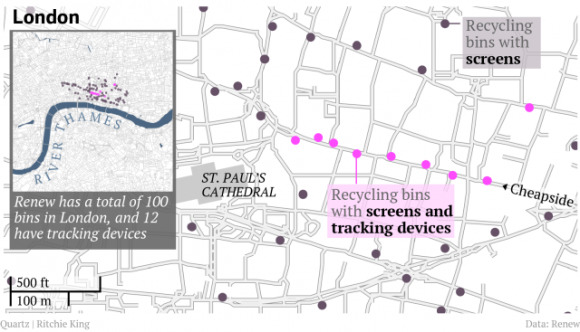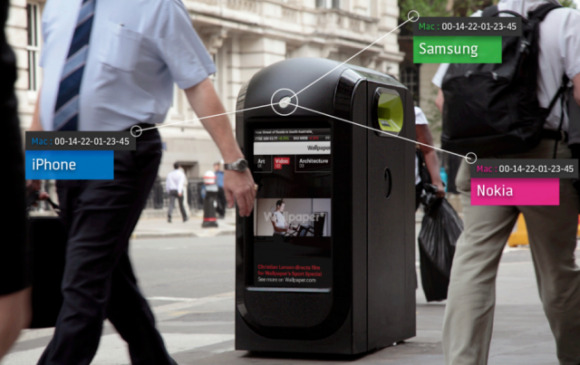Smartphone Tracking Recycling Bins Nixed By London
If you were worried that the universe presented in the smart city-toting Watch Dogs video game, you'll be glad to know that the garbage bins wont be seeing you any time soon. That is to say: won't be tracking you from now on. According to a report released by the group responsible for the bins (called Renew), the City of London has put the temporary stopper on their recycling bin people-tracking business – all 12 bins.
Renew had been tracking users in the City of London for at least a few weeks this Summer from recycling bins outfitted with MAC address-reading sensor. A set of 12 recycling bins were outfitted with tracking devices earlier this year, the vast majority of them appearing along the street known as Cheapside along a rather heavily populated shopping district inside the city.

The company uses technology created by developers at Presence Aware, tracking the unique cookies embedded in each smartphone that passes by. Phones are tracked anonymously (so to speak), and without the knowledge of the user being tracked.

Presence Aware aims to help advertisement agencies prove the effectiveness of their ad campaigns. They'd do this by placing a tracker near a sign, near enough that it's likely passers-by would see said sign. These people are tracked – their phones are tracked, that is – and the business paying for the advertisement can see how these users did or did not head to their store immediately.
Speaking with Quartz, Kaveh Memari, CEO of Renew, made her case for the freedom of said information.
""From our point of view, it's open to everybody, everyone can buy that data. London is the most heavily surveillanced city in the world...As long as we don't add a name and home address, it's legal." – Kaveh Memari, CEO of Renew
Word is today that the City of London Corporation has demanded the immediate cease of tracking as such while the Information Commissioner's Office makes a decision on whether the technology is legal. This technology would need to comply with the UK's Data Protection Act to keep rolling out in the future.
VIA: Engadget, The Telegraph
